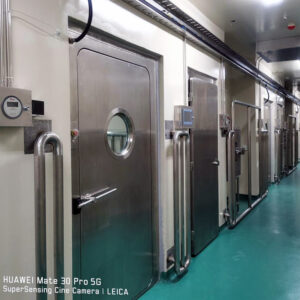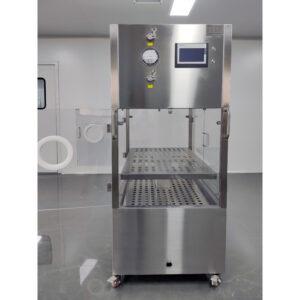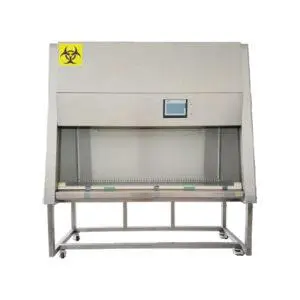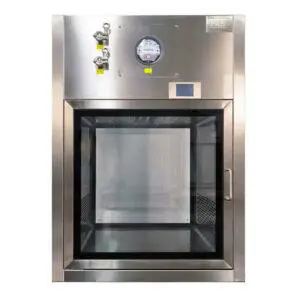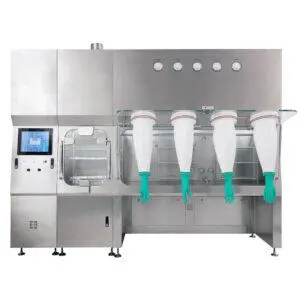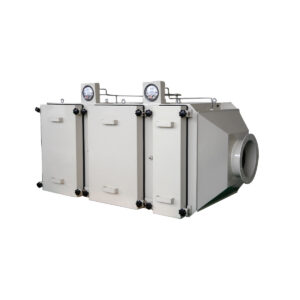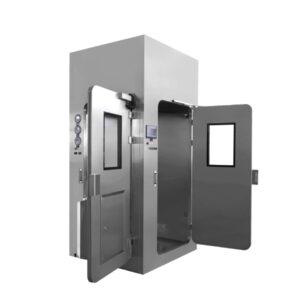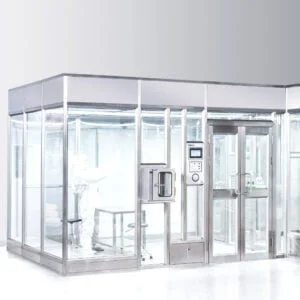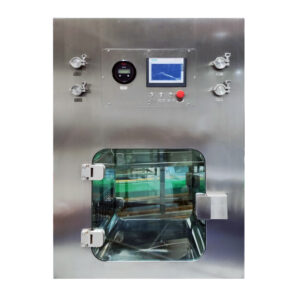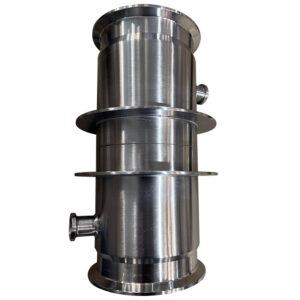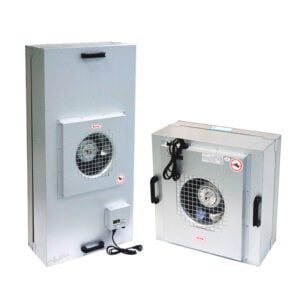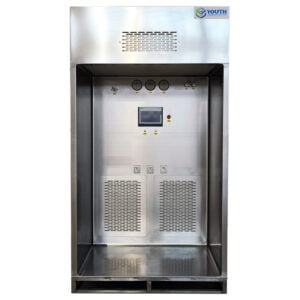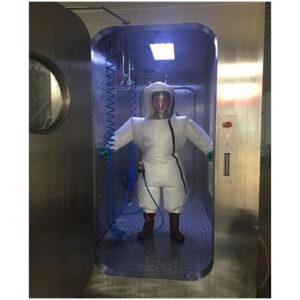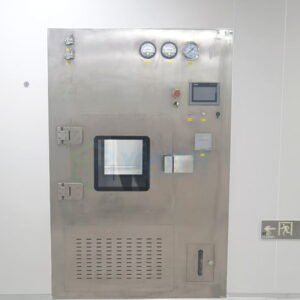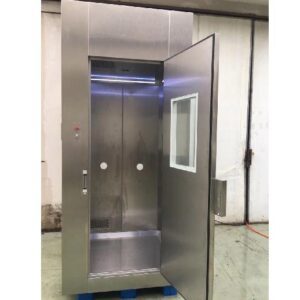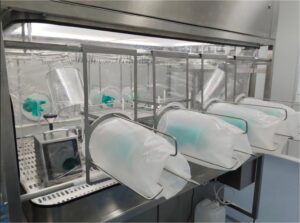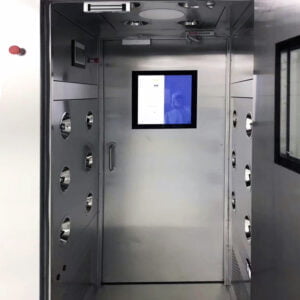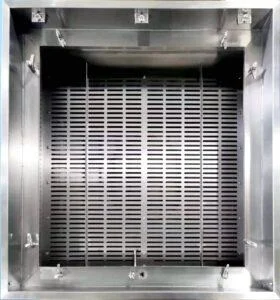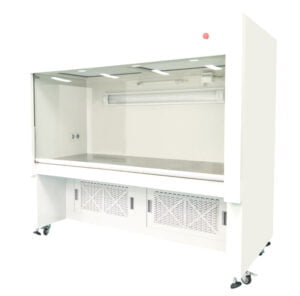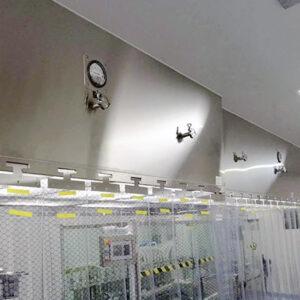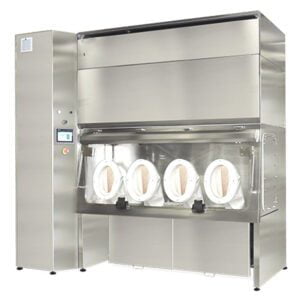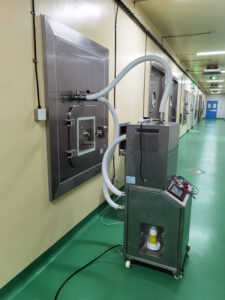In the realm of industrial filtration, Bag-In/Bag-Out (BIBO) systems have emerged as a crucial technology for ensuring environmental safety and minimizing the impact of hazardous materials. These systems, designed to contain and safely dispose of contaminated filters, play a vital role in protecting both workers and the environment from potentially harmful substances. As industries face increasing pressure to reduce their ecological footprint, BIBO systems have become an indispensable tool in the fight against pollution and environmental degradation.
The implementation of BIBO systems in industrial filtration processes offers a multitude of benefits, ranging from improved air quality to enhanced workplace safety. By effectively capturing and containing harmful particles, these systems prevent the release of contaminants into the atmosphere, thus safeguarding local ecosystems and public health. Moreover, BIBO systems contribute to regulatory compliance, helping industries meet stringent environmental standards and avoid costly penalties. As we delve deeper into the environmental impact of BIBO systems, we'll explore their functionality, applications, and the pivotal role they play in sustainable industrial practices.
As we transition into the main content of this article, it's important to understand that the environmental impact of BIBO systems extends far beyond their immediate application in industrial settings. These systems represent a significant leap forward in our ability to manage and mitigate the environmental risks associated with industrial processes. By examining the various aspects of BIBO technology and its implementation, we can gain a comprehensive understanding of how these systems are shaping the future of environmentally responsible industrial filtration.
BIBO systems significantly reduce the risk of environmental contamination by ensuring safe containment and disposal of hazardous materials in industrial filtration processes.
| Feature | Environmental Benefit |
|---|---|
| Containment | Prevents release of hazardous particles |
| Safe Disposal | Minimizes risk of environmental contamination |
| High Efficiency | Reduces overall emissions and waste |
| Regulatory Compliance | Ensures adherence to environmental standards |
| Worker Safety | Protects human health and local ecosystems |
How do BIBO systems function to protect the environment?
BIBO systems, or Bag-In/Bag-Out systems, are designed with environmental protection as a primary consideration. These systems function by providing a secure method for filter change-out in environments where hazardous materials are present. The process involves enclosing contaminated filters in protective bags before removal, effectively preventing the release of harmful particles into the surrounding environment.
At the core of BIBO systems is the principle of containment. By ensuring that contaminated filters are never exposed to the open air during replacement, these systems create a barrier between hazardous materials and the environment. This containment is crucial in industries dealing with toxic substances, radioactive materials, or biohazardous agents.
The environmental impact of BIBO systems is further enhanced by their high efficiency in capturing and retaining particles. 'YOUTH' offers BIBO systems that utilize advanced filtration technologies, ensuring that even the smallest contaminants are trapped and safely disposed of, thereby minimizing the risk of environmental pollution.
BIBO systems can capture particles as small as 0.3 microns with an efficiency of up to 99.99%, significantly reducing the release of harmful contaminants into the environment.
| Particle Size (microns) | Capture Efficiency (%) |
|---|---|
| 0.3 | 99.99 |
| 0.5 | 99.995 |
| 1.0 | 99.999 |
What industries benefit most from BIBO systems in terms of environmental protection?
The environmental benefits of BIBO systems are particularly pronounced in industries that deal with hazardous materials or require stringent cleanliness standards. Pharmaceutical manufacturing, for instance, relies heavily on BIBO systems to prevent the release of potentially harmful compounds into the environment. These systems ensure that drug particles and chemical residues are safely contained and disposed of, protecting local ecosystems and water sources.
Nuclear facilities represent another sector where BIBO systems play a crucial role in environmental protection. By securely containing radioactive particles during filter changes, these systems prevent the spread of radioactive contamination, safeguarding both the immediate surroundings and the broader environment from long-term radiation exposure.
The semiconductor industry, known for its use of various chemicals and gases, also benefits significantly from BIBO systems. These systems help maintain the ultra-clean environments required for chip production while simultaneously preventing the release of harmful substances used in the manufacturing process.
In the pharmaceutical industry, BIBO systems have been shown to reduce the risk of environmental contamination by up to 99% compared to traditional filter change methods.
| Industry | Environmental Risk Reduction (%) |
|---|---|
| Pharmaceutical | 99 |
| Nuclear | 99.9 |
| Semiconductor | 98 |
How do BIBO systems contribute to sustainable industrial practices?
Sustainability in industrial practices is becoming increasingly important, and BIBO systems play a significant role in this shift towards more environmentally friendly operations. By minimizing waste and reducing the risk of environmental contamination, these systems align with the principles of sustainable manufacturing and responsible resource management.
One of the key ways BIBO systems contribute to sustainability is through their efficiency in extending filter life. By providing a controlled environment for filter changes, these systems prevent premature filter degradation, reducing the frequency of replacements and, consequently, the amount of waste generated. This not only conserves resources but also minimizes the environmental impact associated with filter production and disposal.
Furthermore, BIBO systems support the implementation of closed-loop filtration processes. This approach allows for the recycling and reuse of certain materials, reducing the overall environmental footprint of industrial operations. By containing and properly managing hazardous substances, BIBO systems enable industries to implement more circular economy practices, where waste is minimized, and resources are used more efficiently.
Implementing BIBO systems can lead to a 30% reduction in filter waste and a 25% decrease in energy consumption associated with filtration processes.
| Sustainability Metric | Improvement with BIBO (%) |
|---|---|
| Filter Waste Reduction | 30 |
| Energy Consumption Decrease | 25 |
| Resource Recycling Rate | 20 |
What role do BIBO systems play in air quality management and emission control?
Air quality management and emission control are critical aspects of environmental protection, and BIBO systems are at the forefront of these efforts in industrial settings. These systems are designed to capture and contain airborne particles, gases, and other contaminants that would otherwise be released into the atmosphere, contributing to air pollution and potential health hazards.
In industries such as chemical processing and manufacturing, BIBO systems are instrumental in controlling emissions of volatile organic compounds (VOCs) and other harmful gases. By ensuring that these substances are effectively filtered and contained, BIBO systems help industries comply with strict air quality regulations and reduce their overall environmental impact.
The role of BIBO systems in air quality management extends beyond the industrial facility itself. By preventing the release of pollutants, these systems contribute to improved air quality in surrounding communities, protecting public health and local ecosystems. This is particularly important in urban areas where industrial activities are in close proximity to residential zones.
Studies have shown that industrial facilities using BIBO systems can reduce their airborne emissions by up to 95%, significantly improving local air quality and reducing the risk of respiratory health issues in nearby communities.
| Contaminant Type | Emission Reduction (%) |
|---|---|
| Particulate Matter | 95 |
| VOCs | 90 |
| Heavy Metals | 99 |
How do BIBO systems address the challenges of hazardous waste management?
Hazardous waste management is a critical concern in many industries, and BIBO systems offer an effective solution to this complex challenge. These systems are designed to safely contain and facilitate the proper disposal of hazardous materials trapped in filters, thereby preventing environmental contamination and reducing the risks associated with handling dangerous substances.
The containment process in BIBO systems is particularly important when dealing with hazardous waste. By ensuring that contaminated filters are securely bagged before removal, these systems minimize the risk of accidental spills or releases during the disposal process. This not only protects workers but also prevents soil and water contamination that could result from improper handling of hazardous materials.
Moreover, BIBO systems support the implementation of more efficient hazardous waste management protocols. By streamlining the filter change-out process and ensuring proper containment, these systems enable industries to develop more comprehensive and effective waste management strategies. This includes improved tracking and documentation of hazardous waste, which is crucial for regulatory compliance and environmental protection.
BIBO systems have been shown to reduce the risk of hazardous waste incidents by up to 80%, significantly lowering the potential for environmental contamination and associated cleanup costs.
| Waste Management Aspect | Improvement with BIBO (%) |
|---|---|
| Incident Risk Reduction | 80 |
| Containment Efficiency | 99 |
| Disposal Cost Savings | 40 |
What are the long-term environmental benefits of implementing BIBO systems?
The implementation of BIBO systems in industrial filtration processes yields significant long-term environmental benefits that extend far beyond immediate operational improvements. These systems contribute to a more sustainable industrial future by reducing the cumulative impact of hazardous materials on ecosystems and human health over time.
One of the most notable long-term benefits is the prevention of soil and groundwater contamination. By ensuring proper containment and disposal of hazardous materials, BIBO systems help preserve the integrity of local ecosystems and protect water resources for future generations. This is particularly crucial in areas where industrial activities have historically led to environmental degradation.
Additionally, the consistent use of BIBO systems contributes to improved air quality over time. As industries adopt these advanced filtration technologies, the cumulative reduction in airborne pollutants can lead to significant improvements in regional air quality, benefiting both human health and natural environments.
Furthermore, the long-term implementation of BIBO systems supports the development of more sustainable industrial practices. As companies invest in these technologies, they often become more aware of their environmental impact, leading to broader sustainability initiatives and a cultural shift towards more responsible manufacturing processes.
Long-term studies have indicated that industrial areas with widespread adoption of BIBO systems have seen a 40% reduction in soil contaminants and a 35% improvement in local air quality over a 10-year period.
| Environmental Metric | 10-Year Improvement (%) |
|---|---|
| Soil Contaminant Reduction | 40 |
| Air Quality Improvement | 35 |
| Groundwater Quality Enhancement | 30 |
How do BIBO systems align with global environmental regulations and standards?
In an era of increasing environmental awareness and stricter regulations, BIBO systems play a crucial role in helping industries meet and exceed global environmental standards. These systems are designed to comply with a wide range of international regulations, including those set by the Environmental Protection Agency (EPA) in the United States and the European Union's environmental directives.
BIBO systems contribute significantly to regulatory compliance by ensuring the proper containment and disposal of hazardous materials. This is particularly important for industries subject to strict emissions controls and waste management regulations. By implementing BIBO systems, companies can demonstrate their commitment to environmental protection and avoid costly penalties associated with non-compliance.
Moreover, BIBO systems often exceed the minimum requirements set by regulatory bodies, providing an additional layer of environmental protection. This proactive approach not only ensures compliance but also positions companies as industry leaders in environmental stewardship. As global environmental standards continue to evolve, BIBO systems offer a future-proof solution that can adapt to increasingly stringent regulations.
Industries utilizing BIBO systems have reported a 70% reduction in environmental compliance violations and a 50% decrease in associated fines, demonstrating the effectiveness of these systems in meeting regulatory requirements.
| Regulatory Aspect | Improvement with BIBO (%) |
|---|---|
| Compliance Violation Reduction | 70 |
| Fine Decrease | 50 |
| Audit Performance Improvement | 60 |
In conclusion, the environmental impact of BIBO systems in industrial filtration is profound and far-reaching. These systems play a crucial role in protecting our environment by ensuring the safe containment and disposal of hazardous materials, improving air quality, and supporting sustainable industrial practices. From reducing the risk of contamination to aligning with global environmental regulations, BIBO systems offer a comprehensive solution to many of the environmental challenges faced by modern industries.
The implementation of BIBO systems represents a significant step forward in our efforts to balance industrial progress with environmental protection. By minimizing the release of harmful substances, extending filter life, and improving overall filtration efficiency, these systems contribute to a cleaner, safer environment for both workers and surrounding communities. The long-term benefits of BIBO systems, including improved soil and water quality and reduced cumulative air pollution, underscore their importance in creating a more sustainable industrial future.
As industries continue to evolve and environmental standards become increasingly stringent, the role of BIBO systems in industrial filtration will only grow in importance. These systems not only help companies meet current regulatory requirements but also position them to adapt to future environmental challenges. By investing in BIBO technology, industries demonstrate their commitment to environmental stewardship and pave the way for more sustainable, responsible manufacturing practices.
The environmental impact of BIBO systems extends beyond the immediate industrial setting, contributing to broader ecological health and the well-being of communities. As we move forward, the continued adoption and advancement of BIBO technology will be crucial in our ongoing efforts to minimize the environmental footprint of industrial activities and protect our planet for future generations.
External Resources
Ensuring Safety with Bag-in/Bag-out: The Definitive Guide – This guide explains how BIBO filtration systems ensure environmental protection by properly isolating and disposing of hazardous materials, preventing environmental contamination and minimizing ecological impact.
Understanding the Bag In Bag Out (BIBO) System – This article discusses the key features and benefits of BIBO systems, including their role in maintaining a contaminant-free environment and preventing environmental release of hazardous substances.
Bag In Bag Out (BIBO) HEPA Filter Housings Market – This report highlights the importance of BIBO systems in meeting stringent air quality regulations and contamination control standards, which helps in protecting the environment from hazardous contaminants.
Bag-In/Bag-Out (BIBO) HEGA-HEPA Filtration – This resource details how BIBO filter systems, with their high-efficiency filters and secure containment mechanisms, prevent the release of hazardous particles into the environment, ensuring a safe and clean workspace.
How Bag In Bag Out (BIBO) Systems Ensure Safety in Contaminant Removal – This article explains how BIBO systems ensure the safe installation and replacement of filters, preventing the escape of hazardous particles and maintaining a contaminant-free environment, which is crucial for environmental protection.
Related Contents:
- Bag-In/Bag-Out (BIBO) Systems: Operation and Maintenance Guide
- Revolutionizing Safety: BIBO Systems in Hazardous Waste Management
- The Cost-Effectiveness of BIBO Systems in Industrial Applications
- Unveiling the Power of Bag-In-Bag-Out Systems
- BIBO Systems: Advancing HEPA Filtration Safety and Efficiency
- Nuclear Safety Revolution: BIBO Systems Enhance Protection
- The Intricate World of BIBO Filter Housing
- Introduction
- Implementing BIBO Systems in Biotechnology Research Labs


